Ants aren’t going away on their own. When these little animals locate what they are looking for, they will not hesitate to take advantage of it. Instead, they enlist the assistance of their nestmates to obtain the food and return it to the colony.
So, how to get rid of ants? You can employ natural ways such as diatomaceous earth, dish soap, neem oil, essential oils, pepper, white vinegar, and boiling water. For commercial products, ant baits can kill entire ant colonies.
The following sections will provide you with a thorough explanation of what ants are, as well as information on ant control and extermination. If you are dealing with an early ant infestation, this is extremely crucial. Read further for more!
How to Get Rid of Ants Naturally?
1. Diatomaceous Earth
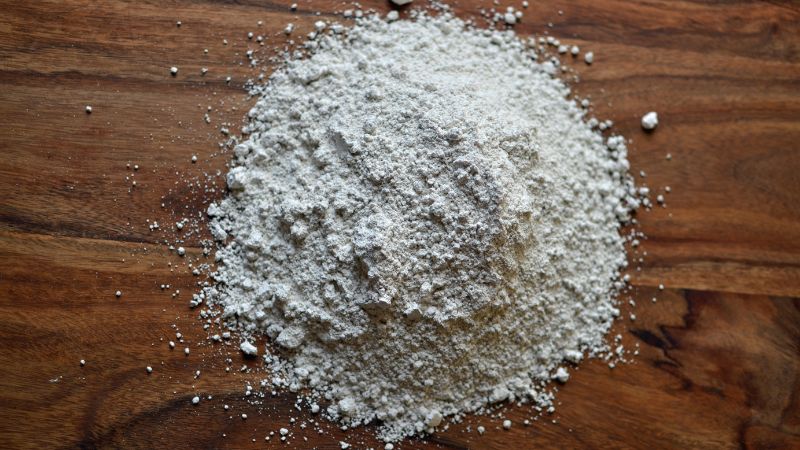
Otherwise known as silicon dioxide, diatomaceous earth is an effective pesticide with a low toxicity level that works by destroying an ant’s protective coating, which then causes desiccation and eventually, death.
This is great for long-term control since it doesn’t provide poison to ants but, instead, offers a mechanical way of killing them almost immediately. Moreover, there’s even food-grade diatomaceous earth available!
To use, either sprinkle it on ant trails or directly on the ants themselves. You can also place it in a dispenser bottle or other appropriate applicators that allow you to release a layer of dust.
2. Dish Soap or Liquid Detergent Mixture
Mix equal parts dish soap or liquid detergent with water then fill a spray bottle with the mixture. Spray onto ant trails, if you found any, to remove the scented pheromones they left behind and do as often as necessary. Afterward, wipe the sprayed area to leave a light residue of the mixture.
3. Neem Oil
Derived from neem trees, neem oil can be used against ants by applying it on indoor houseplants that have aphids in them. Ants will consume aphids which, in turn, makes them swallow the neem oil as well. This way, you’ll be hitting two birds with one stone!
4. Essential Oils

You can use peppermint, lemon eucalyptus, tea tree, cinnamon, or lavender to keep ants away from certain areas in your home. Add 10 to 20 drops of your choice of essential oil (you can also mix them for a more potent repellent) to 2 cups of water then place it in a bottle then spray where you typically spot ants.
Spray where you typically spot ants. If you don’t have a spray bottle at hand, you can simply soak cotton balls into the mixture and then leave them in areas where you see ants, but make sure you keep them out of reach of children and pets.
5. Pepper
Cayenne or black pepper can work as ant repellents as well since they contain capsaicin, a substance that ants find irritating. To use, simply sprinkle pepper around areas where there are ants.
6. White Vinegar
Simply mix a 1:1 ratio of vinegar and water then place it in a spray bottle. Spray on surfaces where there is ant activity. You can also directly spray ants or wipe them using a paper towel.
7. Boiling Water
If you have located their nests or mounds near your house, you can pour boiling water directly into them, killing many ants inside. However, it might not be enough to kill the entire colony or there may be nearby colonies from different nests. For this scenario, treat all ant nests you see with boiling water.
How to Get Rid of Ants Naturally | Eco-Friendly Solutions
How to Get Rid of Ants Naturally Without Harming Pets | Humane Methods!
For more specific topics, check out the following guides:
Does Baking Soda Kill Ants | Must-Know Tips!
Does Vinegar Kill Ants? | Effective Ant Control Guide
Does Honey Attract Ants? | The Sticky Truth
How to Get Rid of Ants with Borax | Step-by-Step Guide & Practical Tips
17 Natural Ant Repellents | Proven, Effective, and Safe Solutions!
14 Amazing Home Remedies for Ants | Eliminate the Invaders Naturally
Best Natural Ant Sprays | Kids and Pet-Friendly Sprays
Top 8 Essential Oils for Ants | Kids and Pets Safe
How To Get Rid Of Ants Without Killing Them | Humane Remedies!
How to Get Rid of Carpenter Ants | Effective Strategies and Natural Solutions
How to Get Rid of Ants?
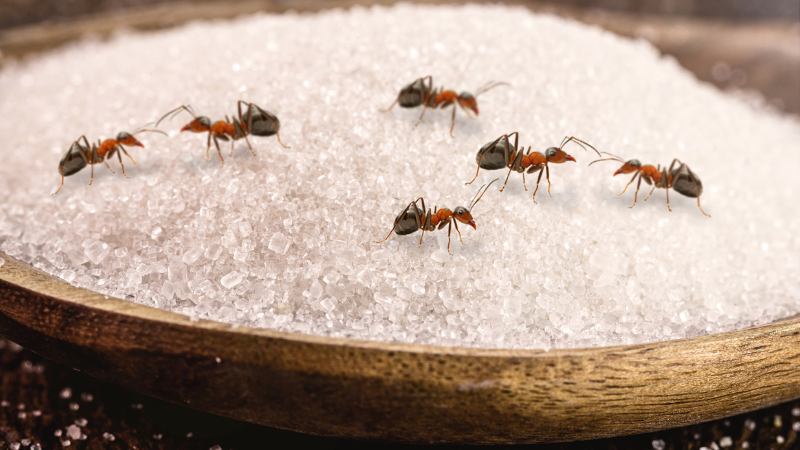
Ants may invade in a variety of ways. If you have discovered them, you want to get rid of them as soon as possible. You have the option of learning how to get rid of ants on your own or hiring a professional.
You can get rid of ants by natural methods such as the use of essential oils, dish soap or liquid detergent, pepper, neem oil, diatomaceous earth, white vinegar, and boiling water. You can also use commercial ant baits to effectively kill an entire colony.
How to Use Ant Baits?
Ant baits are a mixture of a food item (usually sugar) and a toxic chemical (insecticides) that can be used to attract ants. They are available as granules, gels, or soft solid materials.
They work by attracting ants to the bait then prompting them to carry small quantities of the bait back to their nest where they feed it to the rest of the colony, effectively killing them slowly but surely.
To use ant baits and to make sure they are effective in killing ants, you should take note of the following:
- Placement. Place the bait in areas where you know or at least suspect that there is ant activity such as near cupboards, equipment, kitchen counters, and the like. Make sure the bait is out of reach of pets and children.
- Amount of Bait. Regularly check the bait and see if there is still enough. If ants return and they see that the bait has depleted, they will forage in other areas for more food. Leave the bait alone in the same place for 3 to 4 days after seeing that they’re not coming back anymore.
- Sanitation. Keep areas clean by disposing of other accessible food items. It is most ideal that the ants focus on the bait you placed instead.
- Patience. Lastly, ant baiting requires patience because they are usually slow-acting—results don’t happen immediately. If your infestation is severe, you may require several baitings.
Best Ant Baits: Review & Tips (Traps, Stations, Gels, Granules)
How to get rid of ants based on their location?
Ants can get into even the most inaccessible places. For more specific topics— ways to get rid of ants wherever you are—check out the following guides:
How can you get rid of ants based on their species?
Ants have a variety of species. To help you in your battle against ants, first figure out which types of ants you want to get rid of. For more specific topics— ways to get rid of ants based on their species—check out the following guides:
Types of Ants
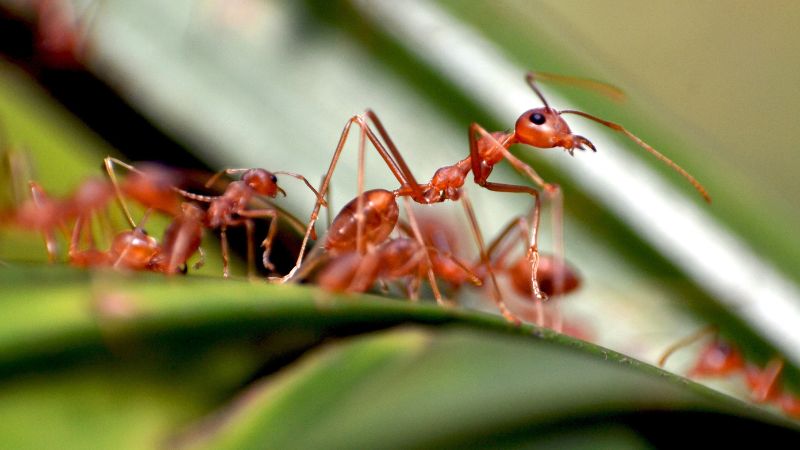
There are 10 common types of ants, each with its distinguishing characteristics that are helpful to identify them. There are about 12,000 ant species worldwide, with 700+ species found in the United States. Learn more >
In fact, if you add up the total weight of all ants on this planet, it will be close to the total weight of all humans—they’re that many! Here are distinct groups you should look out for:
Carpenter Ant
Large ants are common nuisances in homes. Carpenter ants range from ⅝ to ¾ inch in size and are brown or black in color. Although they do not consume wood, they still chew them out when expanding their nests, causing significant structural damage. They prefer areas in houses where there is water damage such as in bathrooms and kitchens.
Larger Yellow Ant
Often mistaken for termites, larger yellow ants can measure up to ¼ inch in length and are dark brown, blackish-brown, or pale yellowish-brown in color. They are found around cracks and crevices in floors, basement walls, rotting wood, and concrete voids. When crushed, they emit a strong citrus odor.
Pharaoh Ant
Pharaoh ants are serious problems in apartments, rest homes, and hotels as they feed on a variety of food, primarily sweets such as honey, jellies, fruit juices, peanut butter, and grease. They are 1/16 inch in length and are a reddish-brown to light yellow color. They are able to transmit infections.
Grease Ant
These ants are common invaders of kitchen cupboards and sinks. Grease ants are 1/32 to 1/16 inch in length, making them incredibly difficult to spot, and are a shiny yellowish to bronze color. They build nests in wood or soil but are often seen trailing near greasy or oily food, dead insects, cheese, and meat.
Pavement Ant
Dark brown in color and are ⅛ inch in length, pavement ants forage in homes throughout the entire year, consuming meat, grease, insects, honeydew, and plant roots and seeds. They build nests under stones, along curb edges, in pavement cracks, and in crevices. During the winter season, they may be found near heat sources.
Odorous House Ant
Light to dark brown ants that are ⅛ inch long, odorous house ants feed on many food items in homes but prefer sugary ones. They get their names for the unpleasant, rotten coconut-like odor they give off when they are crushed. Winged reproductives of this species usually appear in May to July.
Little Black Ant
These ants feed on vegetables, meat, sweets, insects, and honeydew and are ⅛ inch long. They are a shiny black or dark brown color. Little black ants are commonly found nesting in soil, woodwork, lawns, under objects, and masonry. They can also spread widely as they have multiple queens per colony.
All About Ants | Information You Should Know
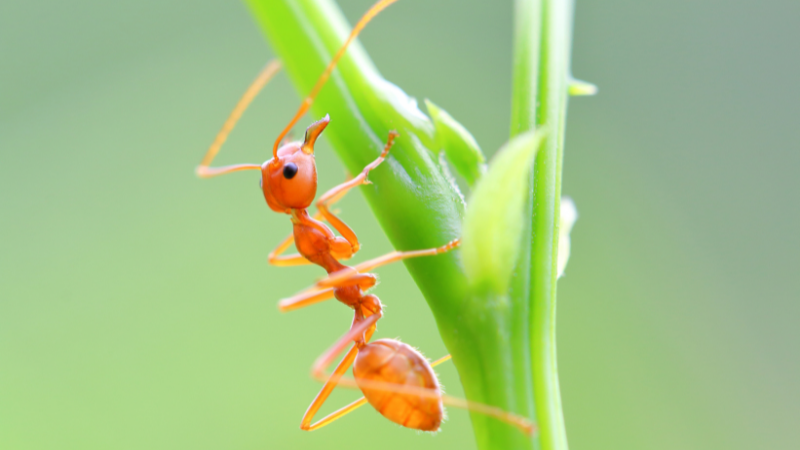
Ant Size
Each variety of ant has distinct features, such as body size. The ant’s size typically ranges from ¾ to 52 mm (1/32 to 2 inches), but this depends on the species. Learn more >
Feeding Habits
Ants are omnivores. In other words, they consume almost anything they come across. Plants and animals make up their food, which provides them with both carbohydrates and protein. Learn more >
Things that Attract Ants
Ants are usually attracted by food sources or moist, warm surroundings. They are attracted to a wide variety of things, such as environmental conditions, foods, insects, electronic devices, and more.
Ant Lifespan
When it comes to surviving, ants are exceptional. They have been called “nature’s miracle” by some scientists. So, how long do ants live? It depends on their role in the colony. Male ants survive up to a few weeks, worker ants live for several months, and queens can live up to two decades!
Ant Predators
Ants are among the most powerful and numerous creatures in the world. They utilize their vast numbers to protect themselves from both tiny and huge predators. However, some ant species only feed on other ant species. Learn more about ant predators >
Do Ants Harm People?
Although ants may serve a variety of roles in nature such as eating other insects, dispersing seeds, pollinating plants, circulating nutrients, and moving soil, they may bite humans and they will definitely sting.
Their bites will result in itching, burning, and swelling. Moreover, ants can damage wood in buildings and contaminate equipment, food, and sterile environments.
Related: Are Ants Dangerous to Your Home, Health, and Environment?
Ant Bites
The capability of ants to bite and sting is by far the most displeasing and often painful of all their flaws. Almost every ant can bite. Some bites are innocuous, and some can induce allergic responses. Learn more about ant bites >
How Do I Keep Ants Out of My House?
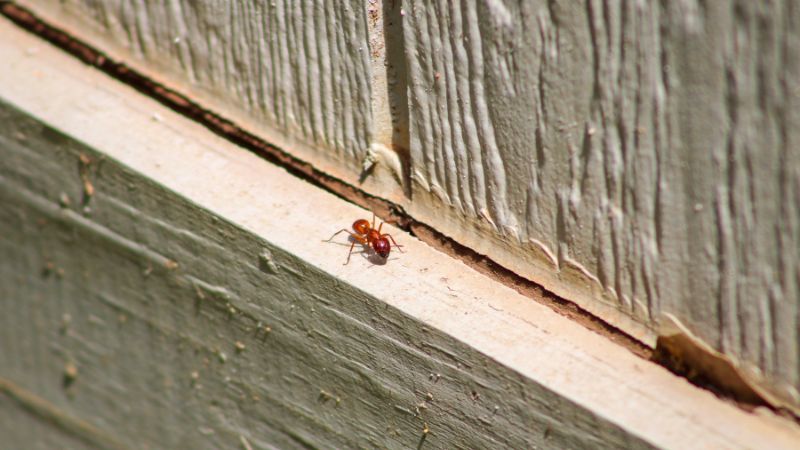
Sanitation and exclusion are the main preventive measures to use against ants. By cleaning your home, they become less attractive to ants. To do so, clean up and/or dispose of any food wastage you see as quickly as possible. Rinse all drinks and food containers before placing them into garbage bins.
Seal all cracks, crevices, foundations, holes, and gaps you see in your house that can be an entry points for ants. Check your water sources for any leaks as ants will enter homes to find moisture.
To reduce nesting outside your homes, keep mulch, vegetation, and leaf litter 10 to 12 inches away from the foundation of the house.
Frequently Asked Questions
Learn more about ants:
How Strong Are Ants? | Incredible Strength Explained
How Many Ants Live on Earth? | 10 Interesting Facts!
Do Ants Lay Eggs | Insightful Facts and Amazing Stats
Are Ants Attracted to Heat? | Fascinating Facts and Practical Implications
Are Red Velvet Ants Poisonous? | All You Need to Know
Eliminate Ants from Your Garden | Proven Techniques and Tips!
Do Ants Carry Diseases? | Germs, Ants and Health
Do Carpenter Ants Bite Humans? | Myths and Reality
Queen Ant Unmasked | Incredible Facts (with Pictures)
Do Ants Poop? | Facts and Myths Explored
Guides
Best Ant Sprays for Indoor and Outdoor Use: Review & Tips
Fire Ant Bite Remedies | Busting Myths & Finding Relief!
Best Insecticide Dust for Ants: Review & Tips
Ants in Winter | Effective Methods for Keeping Ants Out of Your Home
How to Get Rid of Ant Pheromone Trails | Natural Solutions
Find an Ant Exterminator in Your Area
If the ant infestation is out of control, it is time to call for a professional. To know more about ant exterminators, you can check the following guides:
Ant Exterminator Cost | What to Expect and How to Prepare
What Chemicals do Exterminators Use for Ants?
- Bed Bug Surge 2025: How to Detect, Prevent, and Safely Eliminate Infestations in Top U.S. Cities - June 18, 2025
- Asian Needle Ants Invade US Homes: 2025 Guide to Identification, Risks, and Effective Control - June 11, 2025
- New World Screwworm Alert: How US Livestock Owners Can Prevent Outbreaks and Protect Herds [Summer 2025 Update] - June 8, 2025

